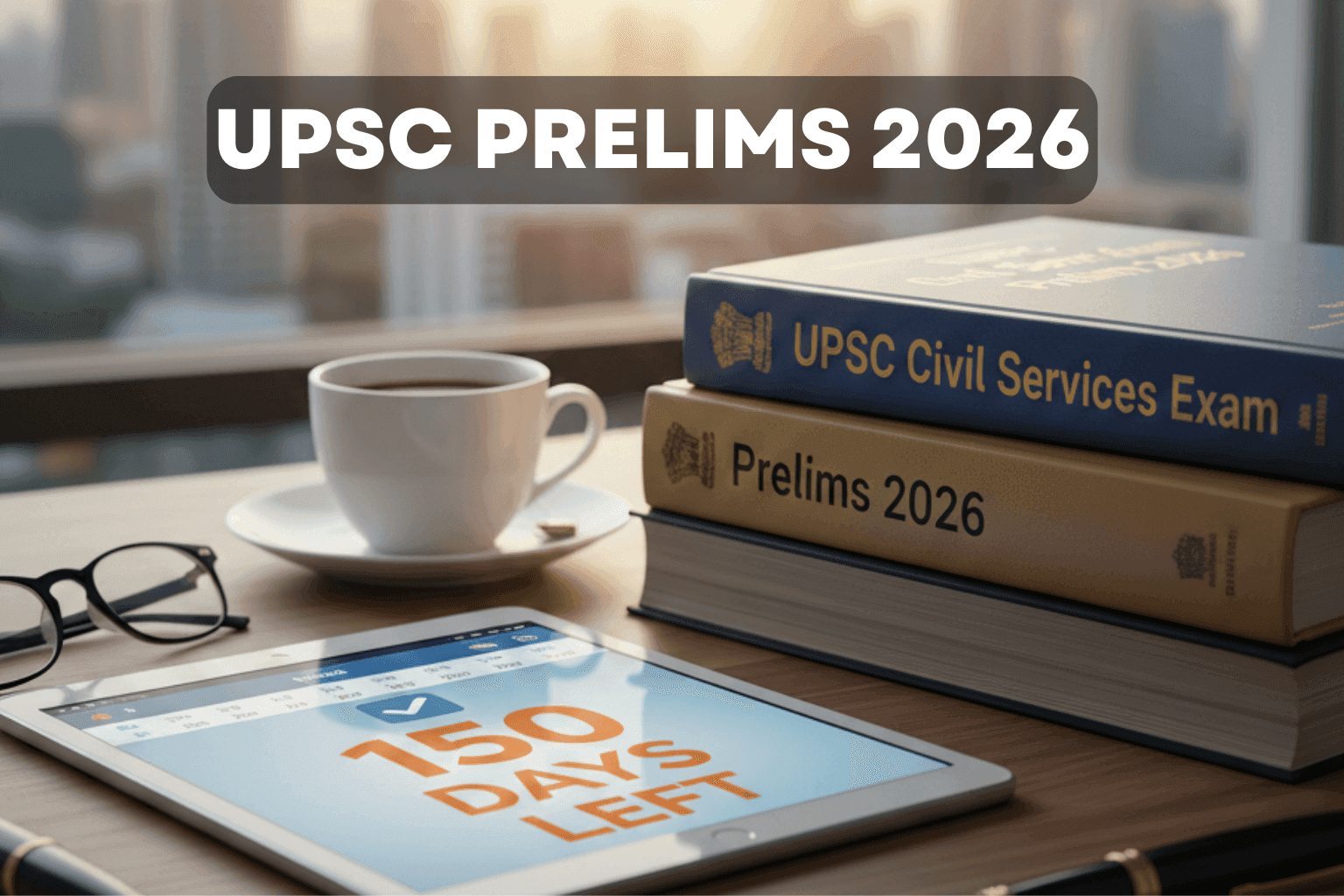21-Day Challenge: Building a Consistent Daily Routine for UPSC Success
Feb, 2025
•3 min read
UPSC preparation is more of a marathon than a sprint, and one of the most important factors for success is building a routine that works for you. Instead of aiming for perfection, this 21-day challenge is about creating a consistent, sustainable rhythm that helps you stay on track while also staying mentally and physically healthy. Here’s how you can structure your days in a way that promotes productivity without burnout.
Day 1-7: Building the Foundation
The first week is all about experimenting with different routines and finding what feels best for you. Everyone has different productive hours, so don’t be afraid to test things out. Here are some general suggestions:
- Start with a Morning Routine: The morning sets the tone for the day. It doesn’t have to be overly structured, but starting your day with a brief physical activity—whether it's a morning walk, yoga, or stretching—can significantly improve focus and energy.
- Plan Study Blocks: Instead of setting specific hours, try to break your day into focused study blocks of 1-2 hours, followed by short breaks. The length of each study block can vary based on your capacity, but aim for productivity rather than pushing yourself to sit for long stretches.
- Incorporate Active Breaks: During breaks, make sure to move around—whether it’s stretching, a quick walk, or even doing a hobby like drawing or playing an instrument. These breaks help refresh the mind, ensuring better focus when you return to studying.
- Tackle Difficult Subjects Early: When your mind is fresh, it's a good idea to focus on challenging subjects (like Geography, Polity, or Economics). Later in the day, lighter topics can be more engaging, like current affairs.
- Set Realistic Goals: In the beginning, avoid overloading yourself. Choose one or two main objectives for each study block—whether it’s reading a chapter or solving a set of questions. Keep your goals simple and achievable.
Day 8-14: Fine-Tuning Your Routine
As you move into the second week, you’ll start to refine your schedule based on the data you’ve collected from the first week. During this phase, the goal is increasing focus and better time management. Here are some adjustments you can make:
- Build Active Revision Time: Start incorporating revision sessions into your day. You don’t need to revise everything at once—focus on what you've studied recently and work on reinforcing key concepts.
- Practice More Writing: UPSC isn’t just about learning facts; it’s about applying them effectively. Use some of your study blocks to practice writing essays or answers to previous years’ questions. Keep your writing crisp and practice structuring your responses in a clear, logical manner.
- Flexibility is Key: Everyone has different energy levels at different times of the day, so be flexible. If you find that you're more productive in the evening, shift your focus to more challenging topics later. Conversely, if mornings work better, seize that time for the most mentally demanding tasks.
- Incorporate Mindful Breaks: By now, you’ve likely noticed the need for occasional mental breaks. Use these to engage in activities that recharge you mentally, like meditation, a hobby, or spending time with family. These moments of rest are essential for long-term focus.
Day 15-21: The Refinement Phase
By now, you should have a fairly solid routine. The final stretch is all about refining and optimizing it based on your needs. Here’s what to focus on:
- Prioritize Weak Areas: This is the time to revisit areas where you might feel less confident. Spend some time each day reinforcing concepts you find tricky, but don’t overwhelm yourself.
- Mock Tests and Timed Practice: Incorporating mock tests in your routine is essential. They help you simulate exam conditions and manage time effectively. Gradually increase the number of mocks as you get closer to your exam, but make sure you take time to analyze your performance afterward.
- Mix Study with Relaxation: You might feel the pressure build up towards the end of the 21 days, so remember that relaxation is just as important as study. Mix in activities that bring joy—watching a movie, reading something non-academic, or engaging in a hobby. These activities help maintain mental balance and keep you motivated.
- Reflect and Adjust: Take a moment each week to reflect on how your routine is working. Are you feeling more productive? Are there areas you need to adjust? Fine-tune your approach accordingly to ensure that the challenge remains manageable.
Final Thoughts: The Magic of Consistency
The key to UPSC preparation is consistency, not perfection. The 21-day challenge helps you experiment, adjust, and refine your daily routine so it suits your needs while keeping burnout at bay. Remember, you don’t need to follow a strict, rigid timetable; the goal is to find a sustainable rhythm that allows you to keep moving forward, day after day.
So, go ahead and start your 21-day challenge with an open mind. Trust the process, be kind to yourself, and embrace the journey—it’s all about progress, not perfection!
This approach provides flexibility and helps you build a routine tailored to your personal preferences and energy levels.



